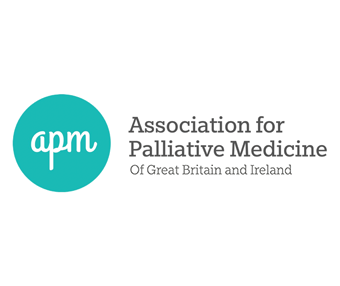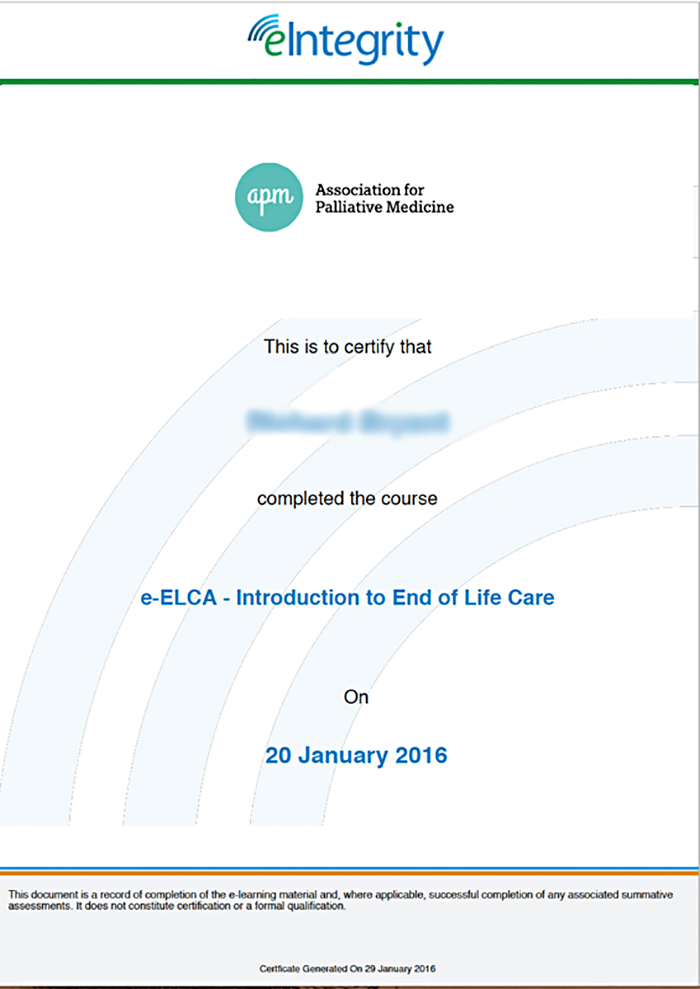
Course Features
- Comprehensive training for health and social care professionals globally
- Over 160 high-quality, interactive elearning sessions
- Test your care skills using scenario-based exercises
£105.00 Excludes VAT where applicable.
This course is available on a 12-month payment plan from £9.50/month.
Multiple or multi-year licences are also available, please contact us for details.
Contact UsAny questions? FAQ's
End of Life Care
This multidisciplinary elearning resource covers the knowledge and skills needed to deliver the highest quality care to people nearing the end of their lives. It is suitable for nurses, doctors, allied care professionals, care home workers and care agency staff anywhere in the world.
Comprehensive care training for practitioners globally
The learning content covers a wide range of topics, include advance care planning, social care and symptom management. It also covers softer skills, such as communication, that are vital in caring for patients and their families. This end of life care course is highly interactive, with videos, self-assessment questions and case studies to help you reflect on the difficult issues and put learning in a practical context.
Test your knowledge with interactive exercises
You can test how you would respond in certain scenarios, such as dealing with a patient’s concerns about their condition. There is a strong focus on understanding the psychological and spiritual aspects of terminal illness.
The content has been written by a multidisciplinary team of experts in conjunction with the Association for Palliative Medicine of Great Britain and Ireland. So, it meets the highest professional standards.
Hello, I’m Chris Farnham and welcome to this section of the eIntegrity website.
I’m here to tell you a little bit about the End of Life Care program which was developed by the Association for Palliative Medicine of Great Britain and Ireland. They have developed over 150 sessions and each of these will take you roughly 25 to 30 minutes to complete.
You can learn at your own pace and the program provides feedback to test your understanding of the content as you progress.
Do have a look at the rest of the website where you’ll find other modules that I know you’ll find relevant to providing end of life care and also how you can register for these modules.
We do hope that you’ll have found this information as useful as we have in providing excellent end of life care.





